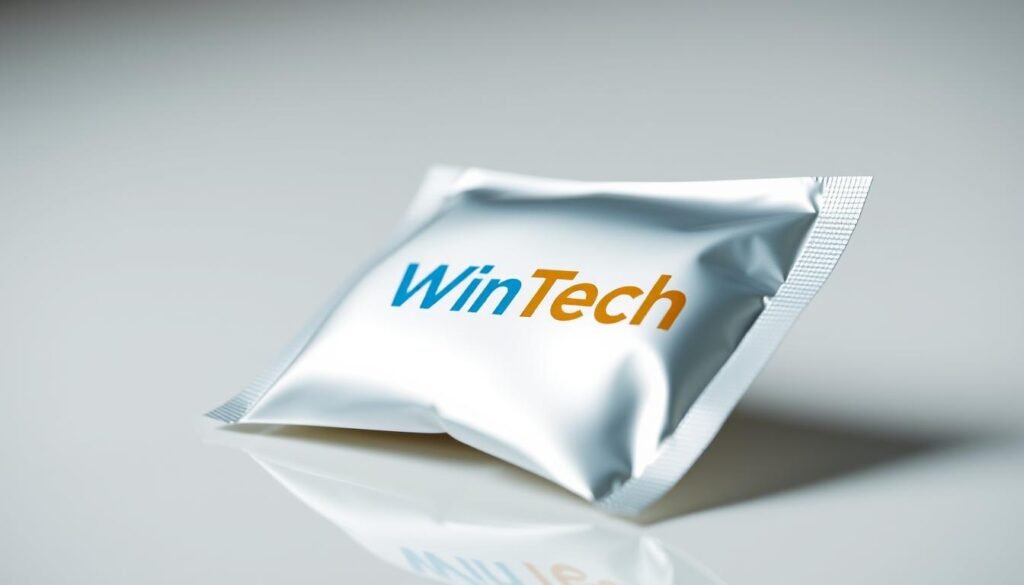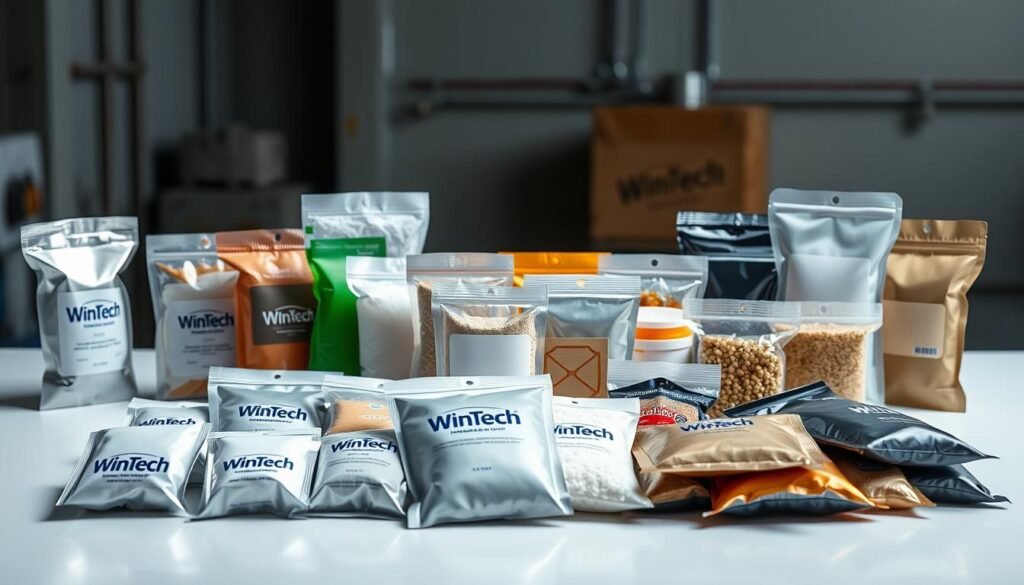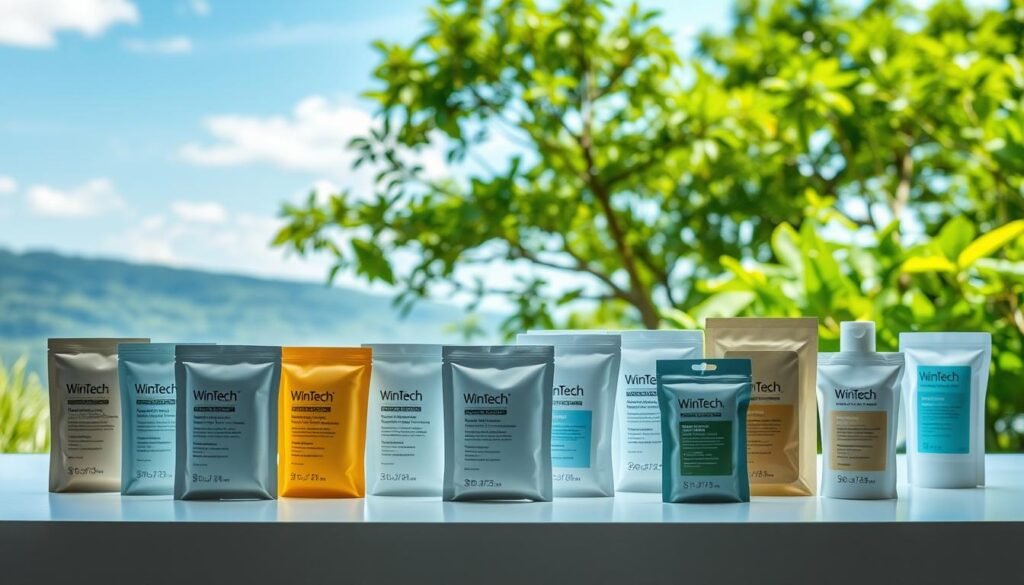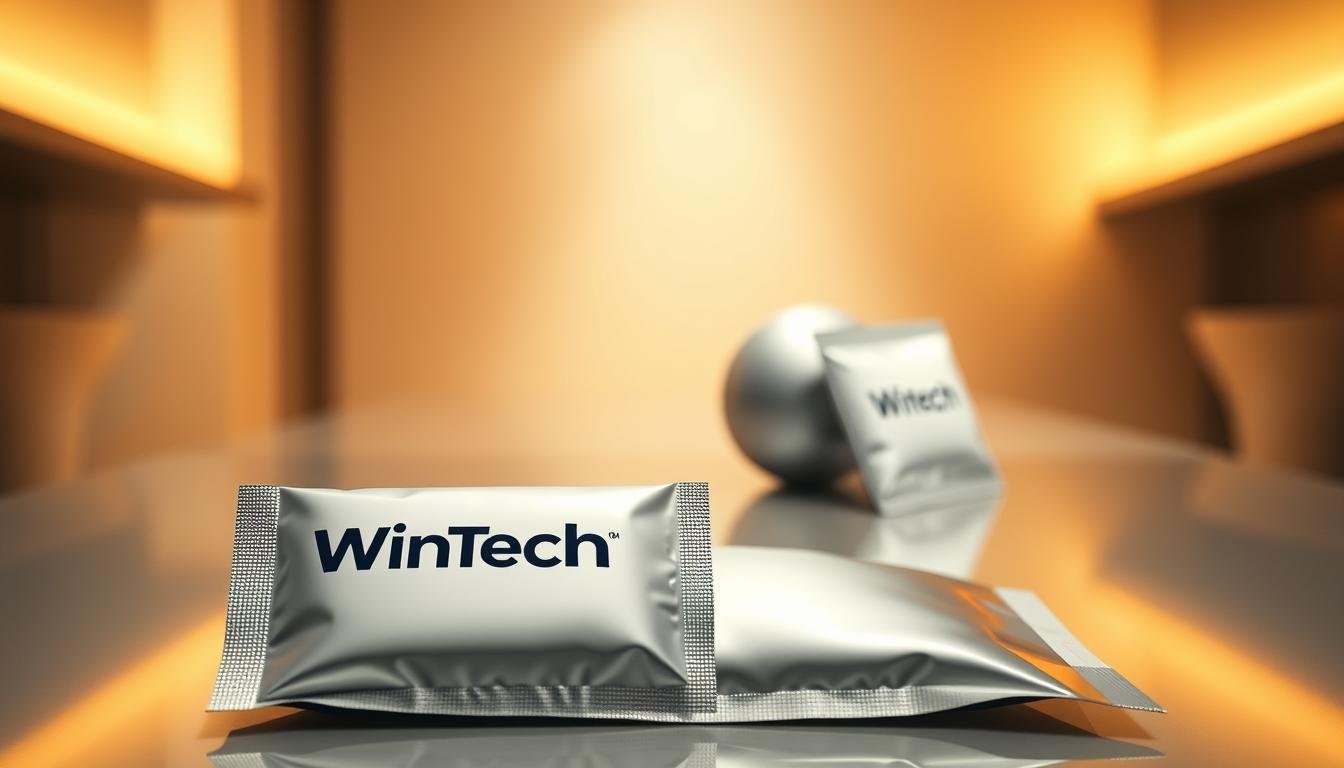What are sachets and the Rise of Single-Use Convenience for the American Consumer
Have you ever wondered What Are Sachets and how single-use packaging is changing the way you consume products? You’re not alone. The rise of sachets has revolutionized the packaging industry, offering convenience and affordability to American consumers.
What Are Sachets? Sachets are small, flexible pouches designed to package a variety of products, from shampoo and instant coffee to laundry detergent and snacks. Their growing popularity is driven by the demand for convenient and affordable packaging solutions.
As a consumer, you’re likely benefiting from the flexibility and portability that sachets offer. But have you considered the environmental impact of these single-use pouches?
Key Takeaways
- What Are Sachets? Sachets are small, flexible pouches used to package various products.
- The sachet packaging market is growing rapidly in the US.
- Sachets offer convenience, affordability, and portability.
- The production and disposal of sachets have environmental implications.
- Sachets are used in various industries, including food, beverages, and personal care.
Understanding What Are Sachets
As you explore the world of packaging, you might wonder what are sachets and their significance. Understanding what are sachets is crucial to appreciating their benefits and drawbacks. What are sachets, and why are they a popular choice among manufacturers and consumers alike? Sachets are small, sealed packets that contain a single serving of a product, making them a convenient option for various industries.

The Definition of Sachets
So, what are sachets? A sachet is a type of packaging that is designed to hold a specific amount of product, usually in a single-serve quantity. What are sachets made of? They can be made from various materials, including plastic, paper, or a combination of both. The versatility in material options allows manufacturers to choose the most suitable packaging for their products. You can find sachets in different sizes, shapes, and designs, catering to various product requirements.
Why Sachets are Popular
What are sachets, and why are they so popular? The convenience, affordability, and portability of sachets make them an attractive option for consumers. You can easily carry sachets in your bag or pocket, making them ideal for on-the-go use. Moreover, sachets help reduce packaging waste by providing a precise amount of product, minimizing excess packaging. As a result, sachets have become a preferred choice in various industries, including food, beverages, and personal care.
The Benefits of Using Sachets
The benefits of using sachets are numerous. What are sachets, and what benefits do they offer? For one, sachets provide increased convenience by allowing you to carry a single serving of a product. They also offer improved product protection by sealing the product in a protective packet. Additionally, sachets can help reduce packaging waste and minimize the environmental impact associated with larger packaging formats. You can enjoy your favorite products in a convenient, portable, and sustainable format.
What Are Sachets Used For?
Sachets have become an integral part of various industries due to their convenience and versatility. You can find sachets being used in a multitude of applications, from packaging food and beverages to containing personal care products.
Common Applications of Sachets
Sachets are widely used across different sectors due to their flexibility and the convenience they offer. Some common examples include packaging for sauces, condiments, spices, and other food products. They are also used in the personal care industry for products like shampoo, conditioner, and lotions.

In addition to these, sachets are used in the pharmaceutical industry for packaging medications and in the beverage industry for packaging coffee, tea, or other drink mixes. Their single-serve format makes them ideal for on-the-go consumption.
Sachets in the Food Industry
The food industry is one of the largest consumers of sachets. They are used to package a variety of products, including ketchup, mayonnaise, mustard, and other condiments. Sachets are also used for packaging spices, instant soups, and other food items.
| Product | Use of Sachets | Benefits |
|---|---|---|
| Condiments | Individual servings | Convenience, reduced waste |
| Spices | Portable packaging | Easy to use, mess-free |
| Instant Soups | Single-serve packets | Convenient, easy to prepare |
The use of sachets in the food industry not only enhances convenience but also helps in reducing packaging waste by providing exact servings.
Beauty and Personal Care Sachets
In the beauty and personal care sector, sachets are used for packaging products like shampoos, conditioners, lotions, and creams. These sachets are particularly popular for travel-sized toiletries and for sampling new products.
Sachet fragrance is also a growing trend, with sachets being used to package fragrances and perfumes for travel or as samples.
- Convenient travel sizes
- Ideal for sampling products
- Portable and mess-free
The use of sachets in beauty and personal care allows consumers to try out products without committing to full-size purchases, enhancing their shopping experience.
What Are Sachets’ Environmental Impact?
As you explore the world of sachets, you may wonder what are sachets’ environmental impact. What are sachets, and how do they affect our planet? The production and disposal of sachets contribute significantly to plastic pollution and waste management issues.
What are sachets, and how can they be made more eco-friendly? You can start by considering the materials used in sachet packaging. Innovations in sustainable sachet packaging are underway, with some companies opting for biodegradable and compostable materials.
Eco-Friendly Alternatives
Sachet examples that showcase eco-friendly alternatives include paper-based sachets and biodegradable sachets. You can also explore sachet DIY projects that utilize recyclable materials.
| Sachet Type | Material | Environmental Impact |
|---|---|---|
| Traditional Sachet | Plastic | Contributes to plastic pollution |
| Biodegradable Sachet | Bioplastics | Breaks down naturally |
| Paper-Based Sachet | Recycled Paper | Eco-friendly, recyclable |
What are sachets, and how can we reduce their environmental footprint? By choosing sustainable sachet packaging options and improving recycling processes, you can contribute to a more environmentally friendly packaging industry.

Innovations in Sustainable Sachet Packaging
Sachet packaging is evolving, with companies exploring new materials and designs that minimize environmental impact. You can expect to see more innovative sachet examples in the future.
The shift towards sustainable sachet packaging is driven by consumer demand and environmental concerns. As you look for eco-friendly options, companies are responding with creative solutions.
What Are Sachets Bringing to Consumers?
You’ve seen how sachets are revolutionizing the packaging industry with their convenience, affordability, and portability. As the demand for single-use packaging continues to grow, the sachet market is evolving to meet consumer needs.
Emerging Trends
The trends in the sachet market include a shift towards sustainable materials, customization for brands, and innovations in packaging technology. Understanding what are sachets and their uses is crucial in appreciating these trends.
Brand Customization
Sachets can be customized for brands by using different materials, designs, and packaging machinery, enhancing their appeal and functionality. Wintech Package is at the forefront of this innovation, providing sachet packaging solutions that meet the needs of various industries.
By embracing sustainable and innovative sachet packaging, you can reduce packaging waste, increase convenience, and improve product protection. As the industry continues to evolve, it’s clear that sachets are here to stay, bringing numerous benefits to consumers and businesses alike.







